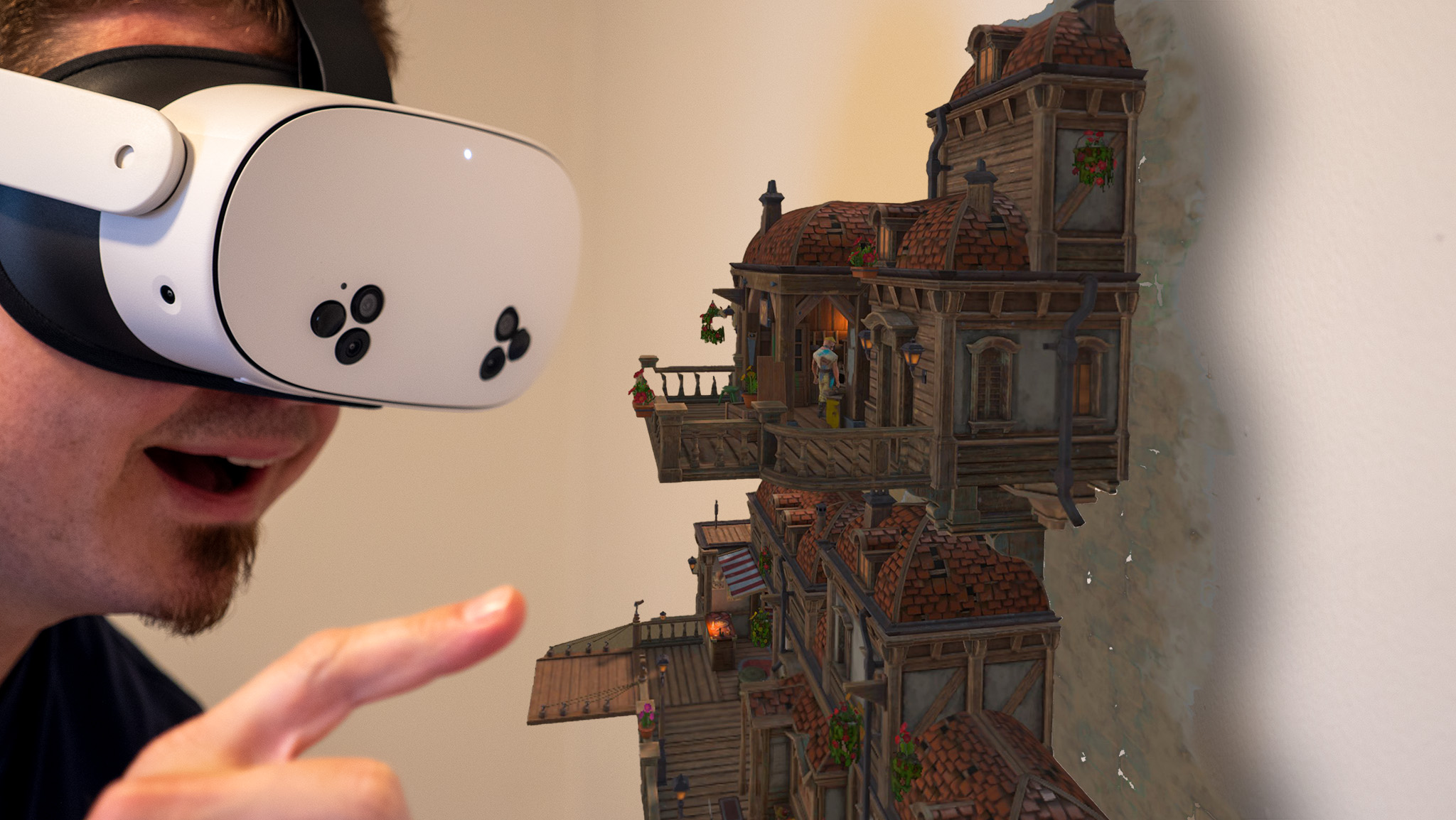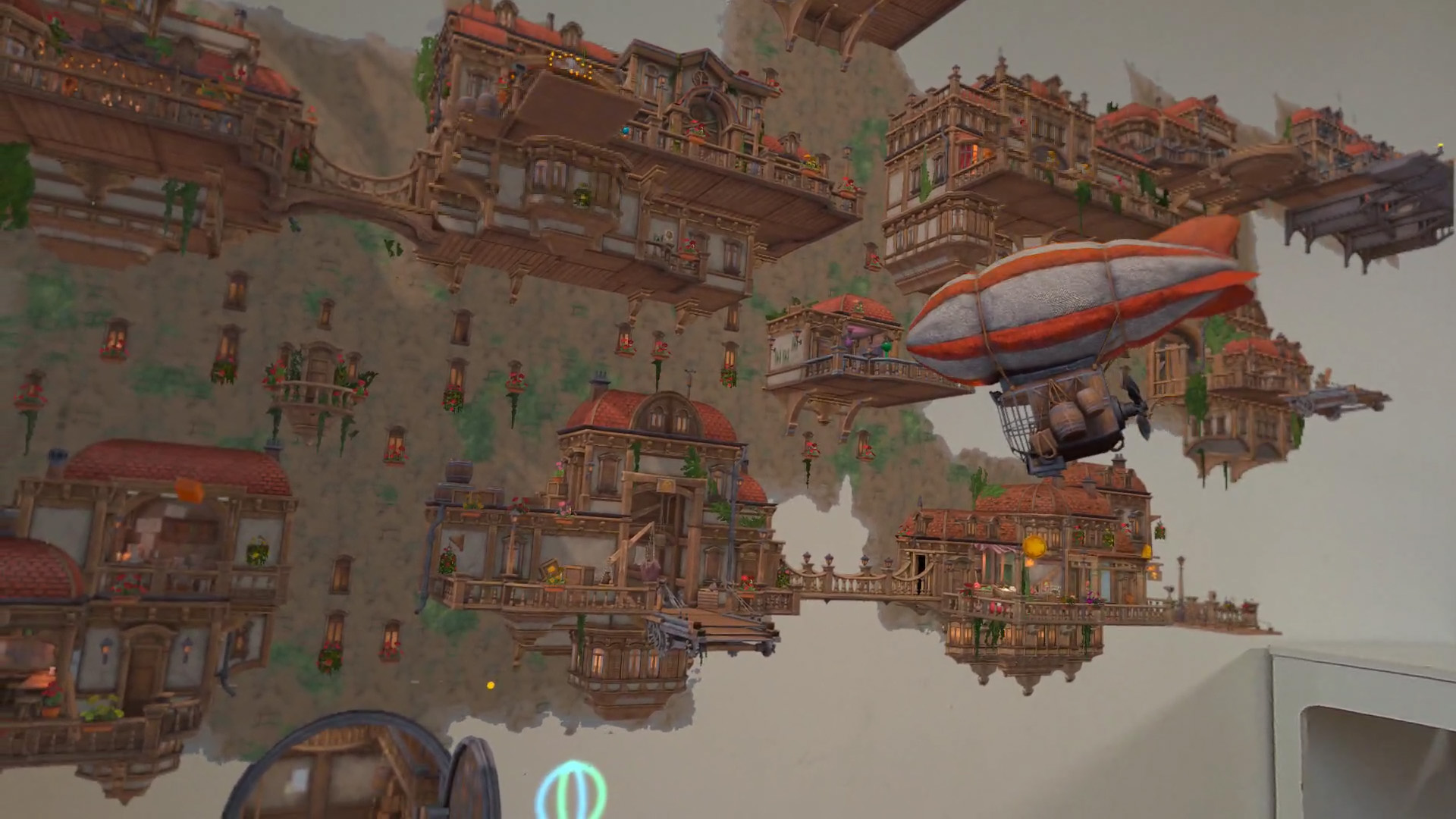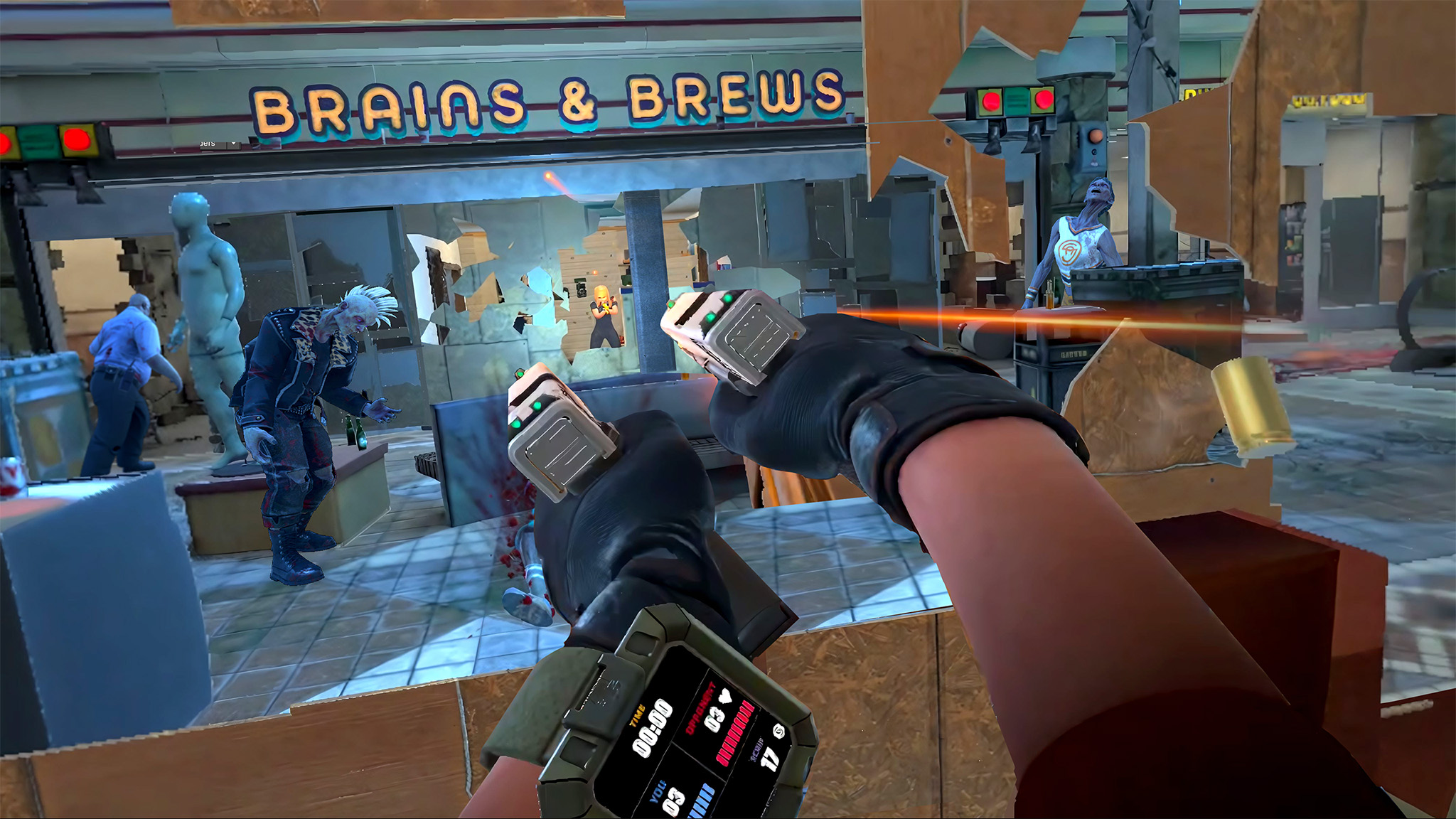
When Meta began pushing mixed reality during last year's Quest 3 launch, I was skeptical. All we had seen up to that point were games where stuff would come out of the walls so you could shoot or grab them. In other words, similar ideas to early VR titles that were fun for 20-30 minutes but lacked any real lasting value.

In his weekly column, Android Central Senior Content Producer Nick Sutrich delves into all things VR, from new hardware to new games, upcoming technologies, and so much more.
One year later, the brilliant developers in the Meta Quest ecosystem have proven me very wrong, with three new games proving that mixed reality is more than just a gimmick. I first saw how mixed reality games could change the landscape in February, and these latest releases have completely changed my expectations going forward.
Of course, this has been building throughout the year. Homeworld Vast Reaches debuted with a way to play the entire strategy game in mixed reality, while titles like Starship Home only exist in mixed reality by transforming your four falls into a spaceship.
Now, The Last Stand, Spatial Ops, and Wall Town Wonders are taking the concept even further in ways that totally blew me away, once again adding more games to the never-ending list of must-play Meta Quest 3 games.
Turning your home into a laser tag arena
Spatial Ops is the latest title from Resolution Games, the folks behind Angry Birds VR, Demeo, Racket Club, and several other VR classics. The company is no stranger to mixed reality but this is the first mixed-reality-only game they've built for the Meta Quest platform.
My family and I had a blast playing the arena mode in the house on a Saturday morning.
Spatial Ops' biggest claim to fame is its ability to turn any large space into a "laser tag arena," for lack of a better term. You set up barriers, weapon spawning locations, and even flags to capture. Arenas can be any size you want, but the bigger the arena, the better your experience will be.
My home isn't particularly large — it's about 1,000 square feet — and the layout isn't particularly helpful for an arena-style game, but my family and I still had a blast playing the arena mode on a Saturday morning with a Meta Quest 3S, Quest 3, and even a Quest 2.
Running around the house blasting each other and picking up power-ups was great family fun, and, like I said previously, a bigger space would be even better for the formula. I found that Capture the Flag or Point Capture works best for smaller spaces as you can defend a small space effectively, while a free-for-all match mostly feels like chaos.
Spatial Ops' single-player campaign feels like a true next-generation Time Crisis light gun game from the glory days of 2000s arcades.
And while the arena mode might be the glitzy mode that gives content creators millions of views, it's the single-player campaign mode that will bring players in for the long haul. In essence, Spatial Ops' single-player campaign feels like a true next-generation Time Crisis light gun game from the glory days of 2000s arcades.
We've got plenty of light gun games these days, but Spatial Ops sets itself apart by using portals to bring the action to your room in a unique way. Not only do these portals have a unique effect that made me hone my focus on them, but they also appear on any of the four walls in your room as well as on the ceiling.
This true 360-degree gameplay felt downright incredible, and I found myself smiling constantly during every minute of gameplay. It's got seven chapters in total, each of which will take 20-30 minutes to complete, making it a respectable length without feeling long in the tooth.
A living Christmas village on your walls
Wall Town Wonders isn't a "Christmas-themed" game — although I fully expect this to be one of the first promised seasonal updates — but it certainly does feel like a Christmas village that came to life. The best part is that you won't need to install any shelves since all the buildings sit on the wall all by themselves.
In Wall Town Wonders, you'll be managing a tiny village that resides on the walls of your room. As you'd expect from a village management game, things are a bit more interactive/intimate than you'd expect from a city builder.
While there's no direct control over the denizens of your town as is the case in a game like Townsmen VR — meaning you can't pick them up and place them anywhere at any time — there are times when a character will hop on your controller so you can bring them somewhere as part of the game's story.

You'll also be directly controlling characters flying planes, riding on the back of miniature (yet giant) lizards, and even combing through mines to dig up ore and other resources. The town simulation isn't relegated to just putting up buildings by any means; your direct input is what will make your town truly thrive.
Some buildings will automatically bring in resources — the restaurant and some shops bring in gold, while smiths and other crafters will bring in their respective resources — but many important resources are gathered through mini-games that you directly control, as well.
I found myself marveling at the miniature lives of the folks who frequented my town, getting up close and personal to see what they were up to when walking in and out of rooms that exist somewhere behind the drywall.
After a little while, you'll build a tropical pond on your floor, which houses diving contests and fishing tournaments, all of which you'll play from a giant's perspective. Berry hunting with the ridable lizards sees the little green guys crawling on your walls while tending to the town's garden, which sometimes involves shooting bugs that crawl out of imaginary holes in those same walls.
It's all very fun and imaginative and marks one of the most charming times I've yet experienced in any VR or mixed-reality game. I found myself marveling at the miniature lives of the folks who frequented my town, getting up close and personal to see what they were up to when walking in and out of rooms that existed somewhere behind the drywall.
Not only is the placement of objects super convincing but there's even a way to adjust the lighting to better match your room if you're really a stickler for realism. Plus, controller and hand-tracking support means you can play this as casually as you want, although I generally found that I preferred controller support for some mini-games.
Not just another zombie shooter in a mall
The Last Stand is the...ahem...last game I'll cover today, and I'll keep it mostly brief. That's not because I didn't like it at all — quite the contrary. It's because the game just launched in early access and is best when played in half-hour bouts.
This one is made by the folks behind Drop Dead: The Cabin and the accompanying Home Invasion mixed reality mode. If anything, The Last Stand feels like the full version of what the team was trying to do with Home Invasion, as the game turns your room into a mall store that you'll need to defend.
The twist is that another human player is on the other side of the mall, and only one person can walk away with the title "survivor."
Your real furniture can be used to duck behind and protect yourself from virtual gun fire, and that was just super trippy to me.
Developer Soul Assembly is currently developing a proper progression game mode, but for now, you can still enjoy defending your store and keeping at the top of the leaderboards, playing rounds with friends or random folks alike.
The concept alone is interesting enough, but I was impressed by how large my tiny 10ftx10ft guest bedroom felt once The Last Stand attached doorways and windows to the walls. People often add ceiling-to-floor mirrors to make rooms feel larger than they are, but this is a next-level room makeover — well, except for the boarded-up windows and invading zombies, of course.
Looking out at a mall-sized room outside my own room was simply surreal, but taking in the sights doesn't last long as the other player will be shooting at you all while zombies try to consume your brains. Zombie kills equate to cash earned, and the handy tablet you have on your back gets you a quick way to buy better gear and weapons to progress faster.

I also loved being able to designate one wall as the "main" wall, which would completely change the look and feel of the room. Soul Assembly says that rooms with more furniture in them are best for this game and that immediately made sense when I picked a wall with no furniture against it. Your real furniture can be used to duck behind and protect yourself from virtual gunfire, and that was just super trippy to me.
I'm really looking forward to seeing proper character progression and some other features built out for this one over time. It's only a few bucks, though, which makes it easy to pick up without feeling like you got ripped off.
These three games are just a few examples of how good mixed reality gameplay has gotten, and this is just the tip of the iceberg. Many more mixed reality games are coming out before the end of the year, and I expect this class of games will only continue to grow as developers learn how to transform your physical space into new, fun games.
The best part is that you don't even need the most expensive headset for this since the Meta Quest 3S delivers full-quality mixed-reality gameplay for only $299.







